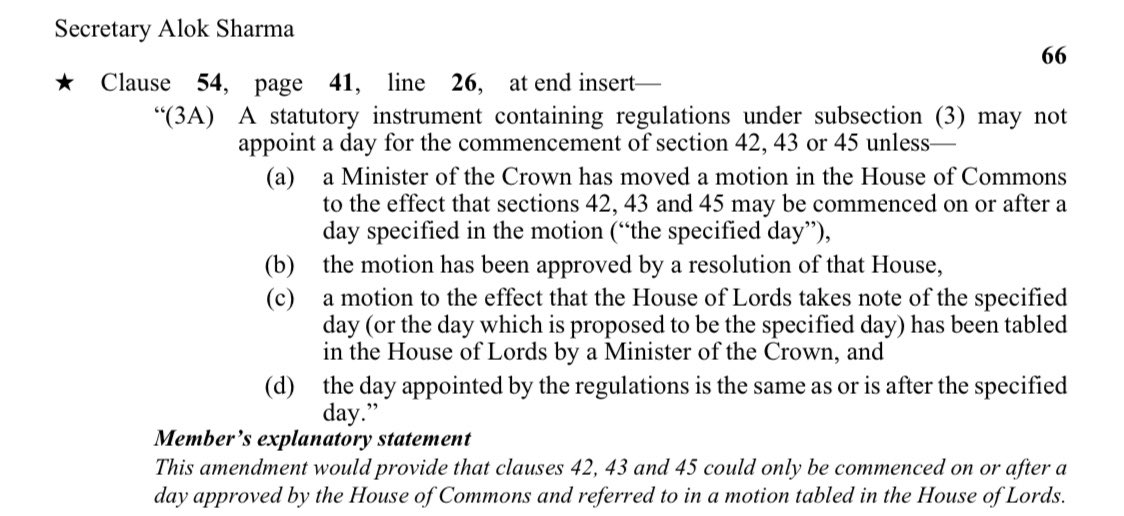
Some interesting (if incomplete) answers yesterday from @ukhomeoffice to my written questions on citizenship deprivation, which will be relevant to debates on #NBBill clause 9 members.parliament.uk/member/4705/wr….
Why was the power to deprive on “conducive to the public good” grounds exercised more than 100 times in 2017, far more than in any other year (though figures for 2019-2021 are not yet available)? 

And an interesting admission that the notification requirement which HMG seeks to remove by clause 9 of the bill has only once stood in the way of the deprivation power (in the D4 case which @SayeedaWarsi and I referred to in our 2nd reading speeches hansard.parliament.uk/Lords/2022-01-…). 

Even that might bear further scrutiny: D4’s address, and that of her family, appear to have been known when the deprivation order was made: see judiciary.uk/wp-content/upl… at para 10 …
… and the judgment is under appeal! judiciary.uk/publications/d…
Even if a case for concealing citizenship deprivation from its subjects can be made out, where is the evidence base to support the breadth of the proposed power (“in the public interest”) and the absence of safeguards e.g. notification after the event?
In both these respects, clause 9 is a good deal harsher than its equivalents in New Zealand and even (wait for it) Australia – as @JOgilvieHarris points out here.
https://twitter.com/JOgilvieHarris/status/1482297298042429440
All this needs debating, which I hope we will achieve in @UKHouseofLords committee on 27 January, with a vote if necessary to follow some weeks later at report stage.
Finally, there is surely a strong case for a brief annual review of the Home Sec’s use of her citizenship deprivation power, most obviously by @terrorwatchdog who reviews other executive powers used for national security reasons. I have an amendment on that too. 

Such independent review has proved an effective way of reassuring people that secret powers are being used properly – and of raising the alarm if, most unusually, they are not daqc.co.uk/wp-content/upl….
So it’s a shame that the one review which Parliament has required in this area – a 3-yearly review of citizenship removals resulting in statelessness – has not been repeated since I was asked to do the first one in 2016 assets.publishing.service.gov.uk/government/upl….
I was told in Sep 2020 that the review to July 2018 would be commissioned once a suitable person had been found to do it. It is now 2022: we don’t know whether the statelessness power has yet been used, and we have heard nothing more of either the 2018 review or the 2021 review. 

If @ukhomeoffice were actively trying to promote suspicion about the use of these draconian powers, this would be a good way to go about it.
/End
/End
Addition to this thread on citizenship removal: I further asked the Home Office if the power to make British citizens stateless had been used, and when the overdue 2018 and 2021 reports will be commissioned. Their answer to my question is recorded as, umm, overdue. #ironyalert 

• • •
Missing some Tweet in this thread? You can try to
force a refresh




